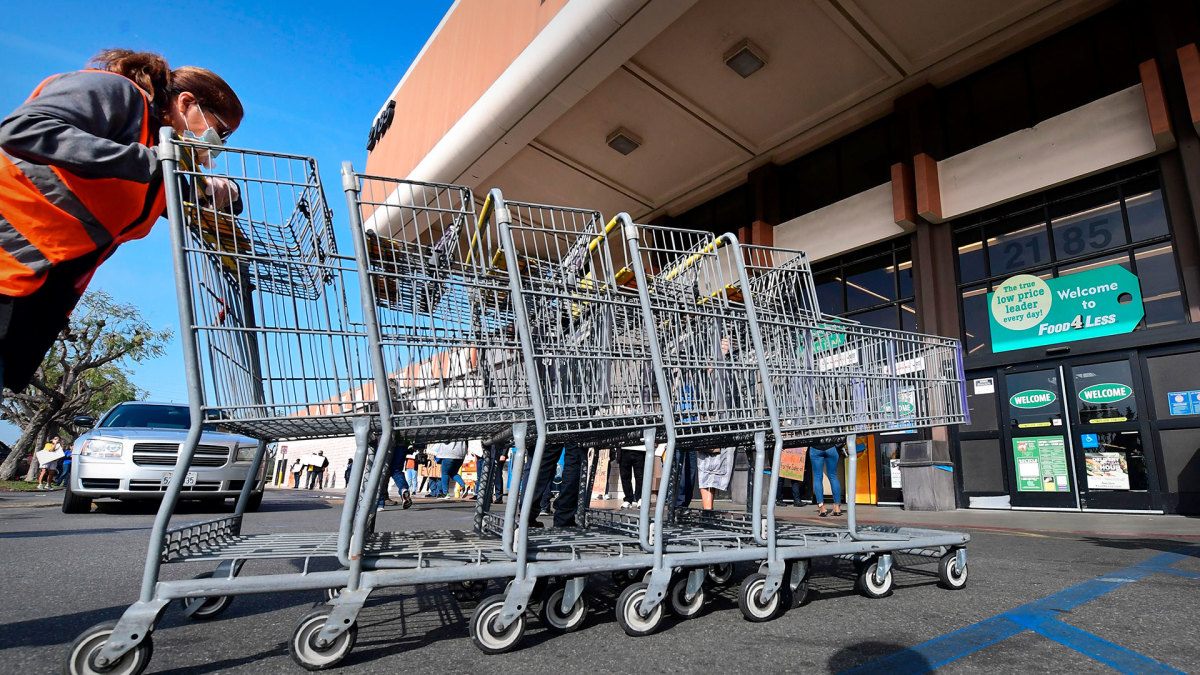
Federal Trade Commission (FTC) put Kroger in a terrible place when it denied the chain’s merger with Albertsons over anti-trust concerns. Judges and federal officials who were against the merger on the grounds that it would lead to decreased competition and higher prices seemed unaware that Walmart, Amazon, and Target all sell groceries.
Yes, a merged Kroger and Albertsons would mean fewer dedicated grocery-only stores. But it would not change the fact that roughly 10% of Americans live within 10 miles of a Walmart, and Amazon delivers pretty much everywhere.
Kroger was dealt a bad hand, but it has worked aggressively to adjust to a world where it now has to compete with three rivals that have national footprints and don’t need to make money selling groceries.
To compete in this environment, interim Kroger CEO Ronald Sargent has been aggressive in making cuts. He talked about that during Kroger’s KR second-quarter earnings call.
“As we continue to build our leadership team, we’re also looking at our costs, especially those expenses that don’t directly support our priorities or deliver value to our shareholders. As we shared last quarter, we’ve begun closing approximately 60 unprofitable stores. Last month, we also reduced our corporate administrative team by nearly 1,000 associates. While these decisions are difficult, they are also necessary for the company’s long-term success.”
Sargent also wants to beat his larger rivals when it comes to price.
Kroger lowers price on thousands of items
Sargent believes that Kroger needs to win more grocery share to be successful in the long run.
“We’re making strategic price investments, which led to another quarter of sequential improvement. In fact, since the beginning of the year, we’ve lowered prices on more than 3,500 incremental products across our stores, which is improving our price spreads against our major competitors. As we lower prices for our customers, we’re committed to doing so in a way that keeps our gross margins stable,” he shared.
Lower prices also means making the coupon experience better for all customers.
“We’re making our promotions simpler and have continued to reduce complex promotional offers. Additionally, we are making it easier for non-digital customers to take advantage of all the value Kroger offers by reintroducing paper coupons in every store,” Sargent added.
More Retail Stocks:
- Kohl’s takes drastic action to fix concerning customer behavior
- Costco Drops Long-Term Policy On Offering Only 1 Credit Option
- New Target CEO Making 3 Major Changes to Win Back Shopper
These changes, Sargent shared, are working.
“Our customers are recognizing these changes, and they’re giving us credit for them. We know this because customer price perception improved in nearly every division this quarter, and we saw another quarter of sequential improvement in share,” he said.
Kroger’s merger was denied based on narrow definitions
Fred Ashton, director of competition policy at the American Action Forum, explained why the FTC denied Kroger’s $24.6 billion acquisition of Albertsons.
“The FTC contended that traditional supermarkets and supercenters – referred to as ‘supermarkets’ – is the proper relevant market. This definition excluded other grocery retailers including club stores, limited assortment stores, dollar stores, and e-commerce retailers.
“The court agreed. The judge’s opinion stated that ‘supermarkets are distinct from other grocery retailers. Supermarkets offer a larger selection of fresh and non-perishable items, a one-stop shopping experience that appeals to a particular customer’s preference to meet all their grocery needs in one location, and a customer service focus with deli, bakery, meat, and other specialized departments.'”
The ruling essentially eliminated Coscto, Walmart, Amazon, and Target as Kroger rivals.
Brian Albrecht, Dirk Auer, Eric Fruits, and Geoffrey A. Manne of the International Center for Law & Economics believed the FTC was harsh in how it viewed the merger.
“The FTC has a long history of assessing retail mergers in a manner significantly at odds with the aggressive approach it is currently signaling. Only one supermarket merger has been challenged in court since American Store’s acquisition of Lucky Stores in 1988: The Whole Foods/Wild Oats merger in 2007,” they wrote.
Timeline of the failed Kroger-Albertsons merger:
- October 2022: Kroger announces intent to acquire Albertsons for ~$24.6 billion.
- Late 2022: Immediate backlash from unions, consumer groups, and some lawmakers.
- 2023: Multiple state attorneys general launch investigations; antitrust concerns mount.
- September 2023: Kroger and Albertsons propose divesting 413 stores to C&S Wholesale to address competition issues.
- Early 2024: FTC and several states file lawsuits to block the merger, citing higher prices and fewer choices.
- 2024-2025: Legal battles and political scrutiny intensify; bipartisan opposition grows.
- September 2025: Kroger and Albertsons officially abandon the merger, citing insurmountable regulatory hurdles.
Related: 175-year-old retail chain shares Chapter 11 bankruptcy fate
#Kroger #lowers #prices #key #coupon